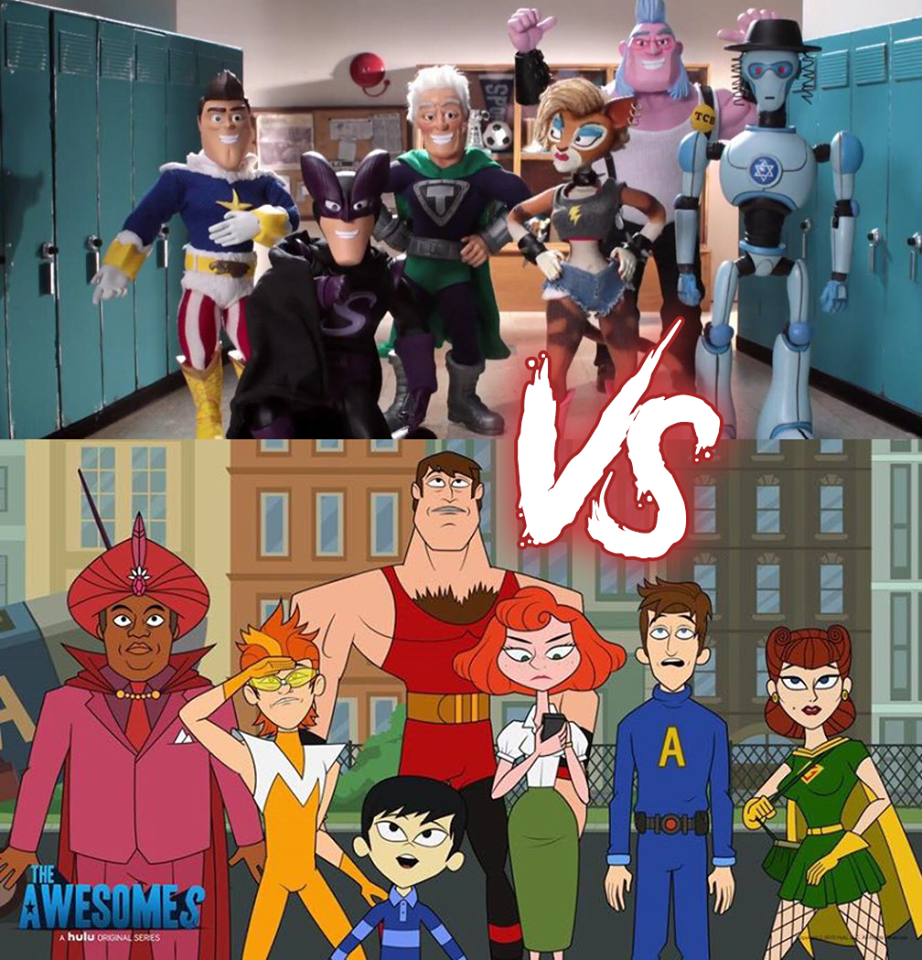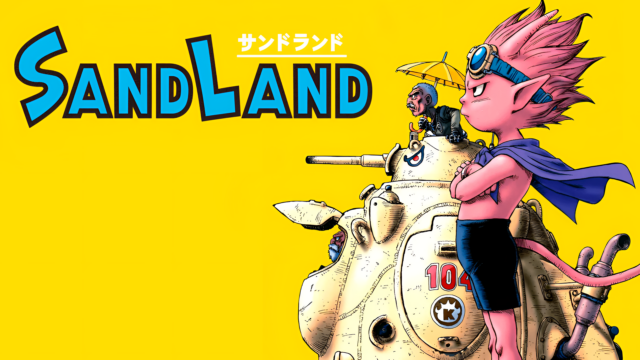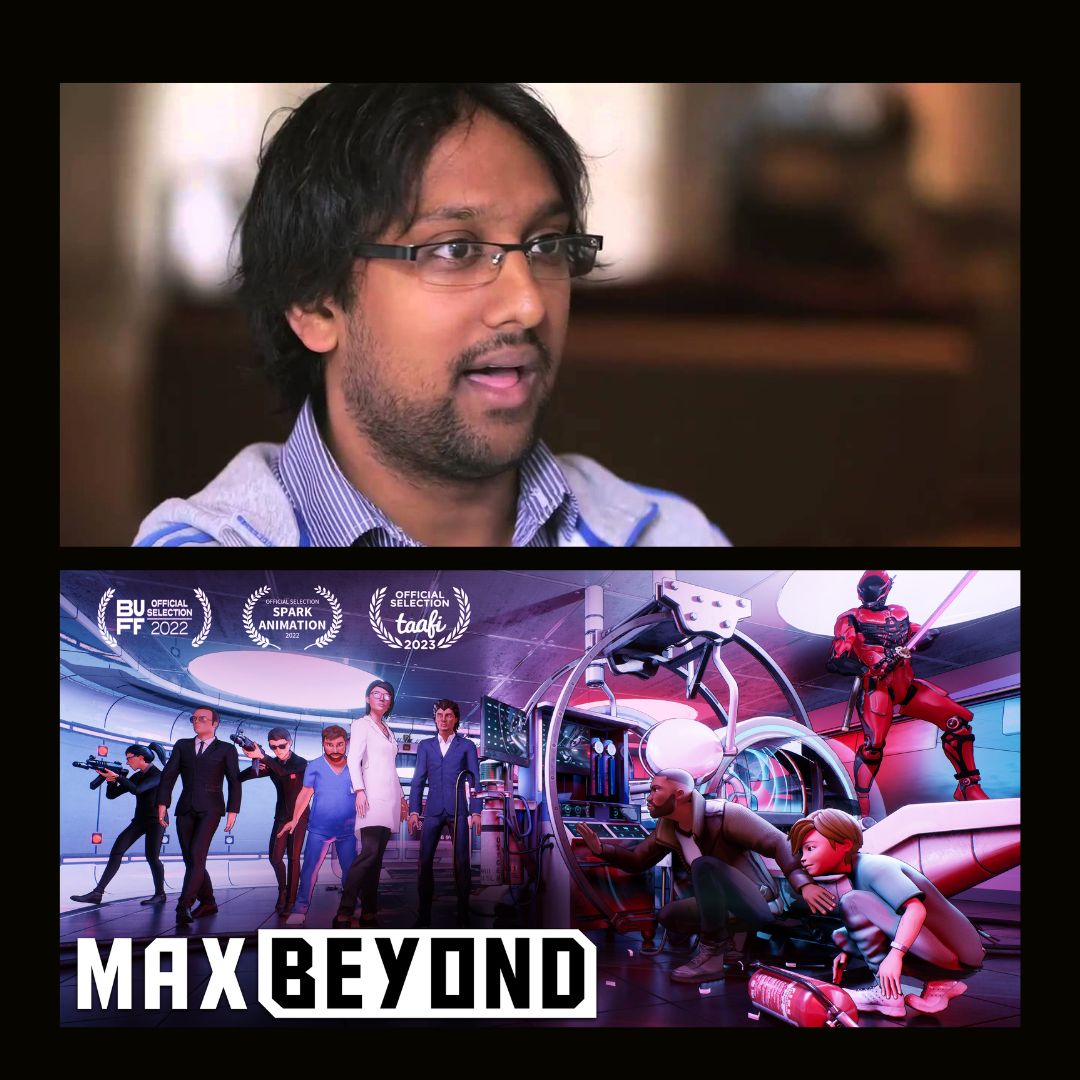The Awesomes v. SuperMansion: Dawn of Supersatire
Crisis on Infinite Streaming Sites!
With the overabundance of superhero media, or even with their prevalence in the world since the late 30’s, people are bound to notice the truly crazy and mockable tropes and clichés that they can turn into jokes. Some fully embrace the camp and fun like “Batman: The Brave and the Bold”, others take it down dark and psychological alleys like The Venture Bros. And some decide to just take the idea of a superhero team into the realm of full-on adult satire, like today’s subjects: The Awesomes, created by SNL alumni Seth Meyers, and SuperMansion, created by Robot Chicken writers Matt Senreich and Zeb Wells. The Awesomes lasted a scant three seasons on Hulu, and with SuperMansion just now putting Season 3 in the books, the time feels right to examine these two similar series regarding where they go right, where they go wrong, and where their subgenre can go from here.
Cut From the Same Cape:
Despite airing near simultaneously, The Awesomes and SuperMansion share a lot in common regarding their core conceit: bringing the idea of superheroes down to earth. Both star teams of supers who are part of a long legacy of do-gooders going back to World War 2. At the start of their respective stories, both The Awesomes and SuperMansion’s League of Freedom are on their last legs and running out of goodwill with the public because of all of the problems having super powered fights can cause. Both of their first seasons see the teams searching for ways to prove they are still relevant and, in a meta sense, having the creators try proving that superhero stories are also still relevant (despite many of them being some of the highest grossing movies of all time as of this writing).
Their casts also share similar super archetypes that provide commentary on iconic characters of the genre. Mr. Awesome and Titanium Rex fill in the aged veteran Superman-type character, both of them have a sworn arch-nemesis who used to be a close friend in Dr. Malocchio and Dr. Deviso, respectively, who ends up raising a daughter that emerges as a secret traitor to the team by the end of the first season but becomes a real hero sometime during the second, such as Hotwire and Titanium Lex. Not to mention the other resemblances between the two teams such as the weirdly ageless Golden Age hero from the 40’s (Gadget Gal /American Ranger), the trailer trash hero who can’t function in normal society (Frantic/Cooch), and the calculating straight man who can barely tolerate the lunacy (Concierge/Robobot). There’s even the Batman with Christian Bale throat cancer (Black Irish/Black Saturn), though thankfully The Awesomes keeps that joke to one scene.
Even the types of superhero stories they tackle have considerable overlap. There’s traveling to an alternate universe/future where heroes and villains switch roles, making one of the heroes go back to school, the aforementioned “traitor” storyline, meeting the European equivalent of the main team (though Supermansion only did this in comic form), and an episode that is at least partly about mocking Aquaman (something I only see escalating once his movie comes out next month). Basically, it’s safe to say that Meyers and Senreich probably read at least some of the same books as kids.
And you can’t miss the obvious parallels in each of the shows’ development. Besides the superhero parody angle, both are/were helmed by veterans of long-running sketch comedy shows (e.g. SNL, Robot Chicken) applying their comedy style from those shows to these ones, as well as bringing on friends and co-stars from those shows to these ones, premiering exclusively on online streaming services (Hulu-Crackle) and now having three seasons under each of their belts. Though hopefully SuperMansion can break this record, and part of that lies in what sets the shows apart.
Divide & Conquer:
The first key difference between these shows lies in their main protagonists. I mentioned before Mr. Awesome’s counterpart in Titanium Rex, but it’s his son, Proq, who ends up taking the reins. This changes the story from being about an old horse trying to remain the star into one of a son trying to fill his dad’s shoes. Not that Supermansion doesn’t make proper use of Titanium Rex, whose own insecurities end up being the source of most of his problems, and the rest being ghosts of his pasts coming back to haunt him, something that you can’t quite have with a newbie hero like Proq. Supermansion also has ways of tackling that with Rex’s daughter Lex, but I’ll get to that later.
Also noteworthy is the varying focus on the romance between the two shows. The Awesomes’ main couple, Proq and Hotwire, was, more often than not, the source of some of the show’s weakest writing, and it stretched over all three seasons, adding next to nothing of value in way of character development. Not because it was about romance, but because said romance revolved solely around their doe-eyed cute stares and not making sufficient use of their star-crossed nature as kids of arch enemies. Supermansion also had a romance subplot between Cooch and Brad, which didn’t take up too much time and actually had a surprising ending.
Speaking of which, what has made that ending still surprising to me is that it’s stuck. A common (and apt) observation of superheroes is that they never stay dead, but so far, Brad’s sacrifice has remained permanent, while pretty much all seeming major deaths in Awesomes’ cast have been undone. That said, you should really only permanently kill off a character when you have no more room for them to grow, but that doesn’t mean you can deflate tension to the point viewers never fear a character might die. Especially when one of Proq’s major abilities was a time-stopping power that could kill him if he used it too long.
To the Shows of Tomorrow:
Even if SuperMansion’s future is up, up, and up in the air right now, there’s likely to be many like it in the future as long as superheroes are a part of pop culture…which basically means until the sun swallows the earth. One major problem I’ve noticed between the two is their treatment of power vs responsibility, which any fan of a certain wall-crawler will tell you is important. The Awesomes has an “evil power serum” that is seen as the cause of many villains’ powers, putting blame on the serum instead of their own choices. Similarly, while it’s localized to Lex, her half-villain genetics seem to be pointing her towards villainy herself, despite the fact that the powers from her evil parent aren’t inherently evil, they’re just powers. Any future superhero comedy show should be able to balance the idea that good and evil aren’t black and white, and that shouldn’t cost them potential humor if they can write well enough.
Both of these shows feel like they come from genuine and true fans of superheroes as concepts, but fans that grew to be taught that they couldn’t be taken seriously without applying topical or mean-spirited humor, instead of being fully aware of the camp while also poking fun at it. And given the recent “Titans” series, I honestly can’t blame them for thinking that. But there’s always a chance for others to learn these lessons and have a few laughs. They only need the light to show them the way. Cue John Williams Superman theme.


























Hi Ashley, thank you so much for reading and we love the feedback. Note that on that day we had 14th posts go up and only ten posts show on the front page, so it's possible the preview had already been archived by the time you got to it. One recommendation would be to add our RSS feed to your favorite news aggregator service like Feedly, this way you get all of the latest posts!